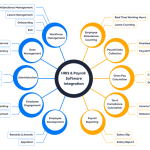The world of honey is evolving rapidly, and Mielado 2024 promises to be a landmark event in the honey and beekeeping industry. With advancements in sustainable beekeeping, new honey production technologies, and a growing demand for organic honey, Mielado 2024 will focus on the latest trends and challenges that the industry faces. This article explores everything you need to know about Mielado 2024—from innovations in honey farming to shifts in the global market and how beekeepers are adapting to the changing climate.
Introduction: Mielado 2024 and Its Importance
Mielado 2024 is not just an event but a global conversation about the future of honey production. The term “Mielado” stems from the Spanish word for honey, reflecting the global significance of this natural sweetener. With climate change, biodiversity loss, and increasing demands for organic and sustainable products, the beekeeping and honey production industries are at a turning point. Mielado 2024 serves as a platform for sharing knowledge, advancing technologies, and exploring new market trends that will shape the future of the industry.
Mielado 2024 is expected to focus on various critical topics including sustainability, innovation in beekeeping techniques, the challenges posed by climate change, and the global honey market trends. Experts, beekeepers, and honey producers from around the world will gather to exchange insights and set the agenda for honey production for the coming years.
The Core of Mielado: Honey Production
Honey has been a part of human culture for thousands of years. It’s not just a food product but a symbol of health, well-being, and sustainability. Mielado 2024 places significant emphasis on the various techniques of honey production and how modern technology is enhancing traditional methods.
Beekeeping practices have evolved to improve honey yields and ensure the survival of bees in challenging environments. Modern techniques in hive management, such as vertical hives, controlled environments, and even AI-driven monitoring systems, are helping beekeepers keep their colonies healthy while maximizing production. Furthermore, organic and pesticide-free honey farming methods are gaining popularity as consumers demand healthier, more sustainable products.
Climate Change and Its Impact on Beekeeping
Climate change is an urgent issue affecting nearly every aspect of agriculture, and honey production is no exception. Rising global temperatures, erratic weather patterns, and habitat destruction are threatening bee populations worldwide. Mielado 2024 will feature discussions and panels that explore how beekeepers can adapt to these changing conditions.
Sustainability is at the heart of modern beekeeping, with many in the industry pushing for greener, more resilient practices. Beekeepers are experimenting with diversified habitats, resilient bee species, and adaptive hives to ensure that bees can survive and thrive in this new environmental reality. The aim is not just to protect bees, but also to safeguard the future of honey production.
Sustainability at the Core of Mielado 2024
One of the central themes of Mielado 2024 is sustainability. Beekeeping, by its nature, has a close connection to the environment, and sustainable practices are essential for maintaining healthy bee populations and ensuring long-term honey production. Sustainable beekeeping focuses on practices such as planting pollinator-friendly plants, reducing chemical use, and creating bee-friendly habitats.
Mielado 2024 will highlight innovations such as regenerative agriculture and the use of technology to track and protect bee populations. Sustainable beekeeping also aims to reduce the carbon footprint associated with honey production, thus appealing to eco-conscious consumers who are increasingly concerned about the environmental impact of their food choices.
Innovations in Beekeeping Technology
The technological innovations that will be showcased at Mielado 2024 could revolutionize the way honey is produced. From AI-powered hive management systems that monitor the health of colonies to drone technology for pollination, the future of beekeeping is becoming increasingly high-tech.
Beekeepers now use advanced sensors to track the temperature, humidity, and activity within hives, allowing them to take preventive measures before problems arise. This technology not only boosts productivity but also helps in combating threats such as diseases and pests, which can devastate bee colonies.
Moreover, technology is making it easier for small-scale beekeepers to enter the market by providing affordable, scalable solutions for hive management. These innovations are set to democratize the industry, making honey production more accessible to individuals across the globe.
Organic Honey: A Rising Trend
As consumers become more health-conscious, the demand for organic and pesticide-free honey is growing. Mielado 2024 will offer insights into the organic honey market, examining how producers can meet this increasing demand. Organic honey farming involves avoiding synthetic chemicals, pesticides, and antibiotics that could harm bees or contaminate the honey.
Certification for organic honey is stringent, and producers must adhere to strict guidelines to market their product as organic. However, the benefits are numerous—both for the environment and for consumer health. Organic honey is often viewed as a premium product, allowing producers to charge higher prices and appeal to a more selective market.
Global Honey Market Trends
The global honey market is undergoing significant changes, with increasing demand for local, raw, and organic honey products. Mielado 2024 will feature discussions on market trends, challenges, and opportunities within the global honey trade. According to recent studies, the global honey market is expected to grow substantially in the coming years, driven by the rising awareness of honey’s health benefits and its use in various sectors such as cosmetics, pharmaceuticals, and the food industry.
Honey’s versatility as a natural sweetener and medicinal product is expanding its market presence, and countries that are traditionally large honey exporters, like China, Argentina, and India, will play a significant role in the market’s future. However, issues such as honey fraud—where cheaper sugar syrups are mixed with or sold as honey—remain a challenge. Mielado 2024 will address how the industry can maintain authenticity and ensure consumers receive the highest quality products.
Mielado 2024: Honey and Health Benefits
Honey has long been known for its health benefits, from its antibacterial properties to its use as a natural remedy for coughs and sore throats. Mielado 2024 will focus on the medicinal properties of honey and its applications in modern health and wellness industries.
Research continues to uncover new health benefits associated with honey, such as its potential role in gut health and its antioxidant properties. Honey is also gaining popularity as a natural alternative to sugar, thanks to its lower glycemic index and higher nutrient content. With health and wellness continuing to be a driving force in consumer behavior, the honey industry is well-positioned to grow.
The Role of Bees in Agriculture and Ecosystems
Bees are essential not only for honey production but also for their role in pollinating crops. Without bees, many of the world’s food sources would be at risk. Mielado 2024 will underscore the importance of bees in agriculture and the urgent need to protect these vital pollinators.
Pollination by bees contributes to biodiversity and the health of ecosystems. Bees pollinate about one-third of the food we eat, including fruits, vegetables, nuts, and seeds. Their contribution to agriculture is invaluable, but with bee populations in decline due to factors such as habitat loss, pesticides, and diseases, urgent action is needed to protect these vital creatures.
Conclusion: A Glimpse into the Future of Beekeeping
Mielado 2024 represents a key moment for the honey and beekeeping industry, offering a space for innovation, collaboration, and sustainable growth. As the world faces new challenges, from climate change to consumer demand for organic products, Mielado 2024 will set the stage for the future of honey production.
Whether you are a beekeeper, a honey producer, or a consumer interested in sustainable agriculture, Mielado 2024 promises to be an event full of insights, innovations, and solutions that will shape the future of honey. Beekeepers worldwide must adapt to a changing environment, adopt new technologies, and embrace sustainability to ensure that honey production remains viable for future generations.
FAQs
What is Mielado 2024 about?
Mielado 2024 focuses on the future of honey production, beekeeping advancements, sustainability, and global market trends.
Why is organic honey important?
Organic honey avoids the use of synthetic chemicals and pesticides, offering a healthier and more eco-friendly product.
How does climate change affect honey production?
Climate change affects honey production by altering weather patterns, affecting bees’ natural habitats, and reducing biodiversity.
What are the benefits of sustainable beekeeping?
Sustainable beekeeping ensures the long-term health of bee populations, reduces environmental impact, and improves honey quality.
How is technology changing beekeeping?
Technology in beekeeping includes AI-driven hive monitoring, temperature control, and advanced pest management, leading to higher productivity and colony health.











